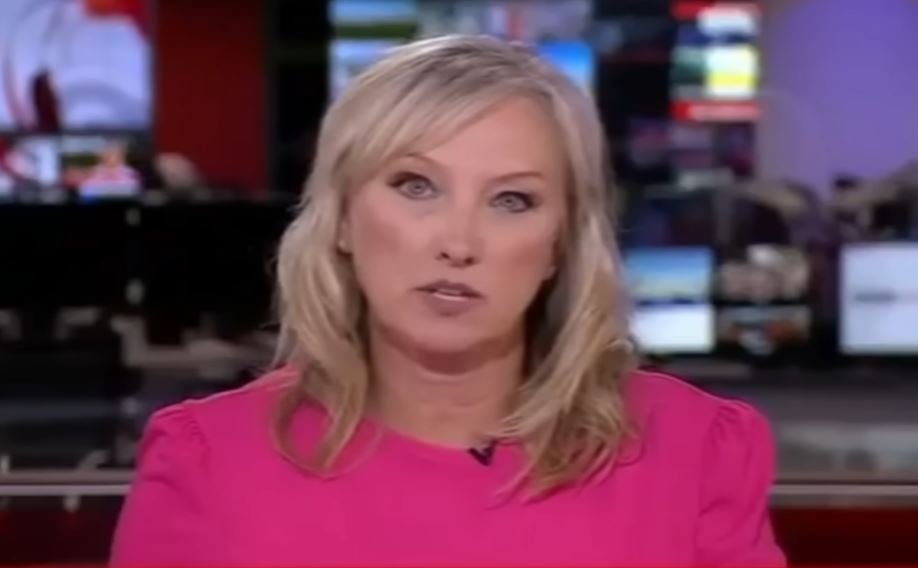
The ripple effect of Martine Croxall’s silent interruption during a live broadcast was remarkably similar to earlier media controversies that began with a single unscripted word. She substituted the word “women” for “pregnant people” in a report on the health risks associated with heatwaves. Although it was a subtle change, it had a significant impact on social media and the national dialogue. A live TV moment became a broader cultural flashpoint when she paused and then rolled her eyes sharply.
Croxall’s seemingly insignificant addition of the word “women” after “pregnant people” generated a great deal of controversy. Her supporters, who included well-known people like J.K. Rowling, applauded her for claiming biological clarity. Critics countered that the move erased the lived experience of trans and non-binary people, calling it politically charged and exclusionary. What started out as a simple news report about heatwave health tips quickly turned into a referendum on inclusive language in journalism.
Martine Croxall – Key Personal and Career Details
| Name | Martine Sarah Croxall |
|---|---|
| Year of Birth | 1969 |
| Nationality | British |
| Education | University of Leeds – Geography |
| Occupation | BBC News Presenter and Broadcast Journalist |
| Employer | British Broadcasting Corporation (BBC) |
| Notable Moment | Amended “pregnant people” to “women” on air |
| Public Response | Strongly polarised, widely discussed |
| Source Link | www.bbc.co.uk/news |
Croxall entered a media debate that had been simmering for years with this one moment. The language used in public discourse has become a point of contention in conversations about gender identity and societal inclusion, especially in recent months. Although newsrooms, medical facilities, and even government agencies have modified their policies to conform to changing linguistic standards, Croxall’s choice served as a reminder to viewers that not everyone has accepted these changes.
“Malcolm Mistry, who was involved in the research, said the elderly, pregnant people… women… and those with pre-existing health conditions need to take precautions,” she said during the broadcast, citing Dr. Malcolm Mistry’s study on heat vulnerability. Although her choice to use the word “women” sounded casual, it was clearly intentional.
“A huge thank you to everyone who has chosen to follow me today for whatever reason,” she wrote in a tweet shortly after, acknowledging the excitement. It’s been an interesting journey. Her silent conviction behind her live choice was reflected in that subtle message.
Croxall avoided escalating the controversy by making a modest but public response, but the video had already gone viral. She was dubbed “my new favourite BBC presenter” by J.K. Rowling, who has been particularly outspoken about language and gender in recent years. That endorsement greatly increased the moment’s visibility, leading to in-depth reporting on it from publications like PinkNews and The Telegraph.
Later, the BBC clarified that Croxall’s script was referencing an academic source and that she used editorial discretion to include the word “women.” They supported her, claiming that her actions were within the parameters of impartiality and accuracy. Crucially, they made no demands for an apology or indications of disciplinary action, which suggests a change in the way publicly funded media handle editorial independence.
For many at the BBC, this incident marked a marked shift in tone from Justin Webb’s censure last year. During a Radio 4 segment, he controversially referred to “trans women” as “males,” a claim that sparked both public and internal criticism. Contrarily, Croxall’s remark was considered contextually appropriate and legally defendable under the Equality Act 2010 despite being controversial.
Another layer is added by that legal framing. In some situations, the term “women” may be deemed legally correct because the Act protects pregnancy under the characteristic of biological sex. That legal requirement, however, does not accurately represent how all organizations or communities understand gendered language, particularly when inclusivity is a top concern.
This conflict highlights a more serious issue facing broadcasters: upholding journalistic accuracy while negotiating changing cultural norms. Particularly when language turns into a battlefield, public organizations like the BBC have to balance objectivity and tact.
A basic question is raised by the controversy surrounding Croxall’s wording: who has the authority to choose the language used in public discourse? The term “pregnant people” can be viewed as inclusive and scientifically neutral by medical professionals and researchers. However, that neutrality is seen by some as weakening the biological reality of sex, including many feminists and legal traditionalists.
It’s important to note that journalists are being put in more challenging situations. As they read from scripts that need to satisfy editors, audiences, advocacy groups, and legal counsel, they are being asked to make snap decisions on extremely complex matters. There was no rebellion during Croxall’s time. Based on intuition and experience, it was a deliberate, introspective change made in real time.
The audience’s reactions also revealed a very human element. Her choice of words made some viewers feel validated and seen. Others experienced erasure. Every word has meaning in a time when identity is discussed as much as policy. When uttered by someone as visible as Croxall, a single edit turns into a signal—a declaration that resonates throughout editorial meetings and digital timelines.
